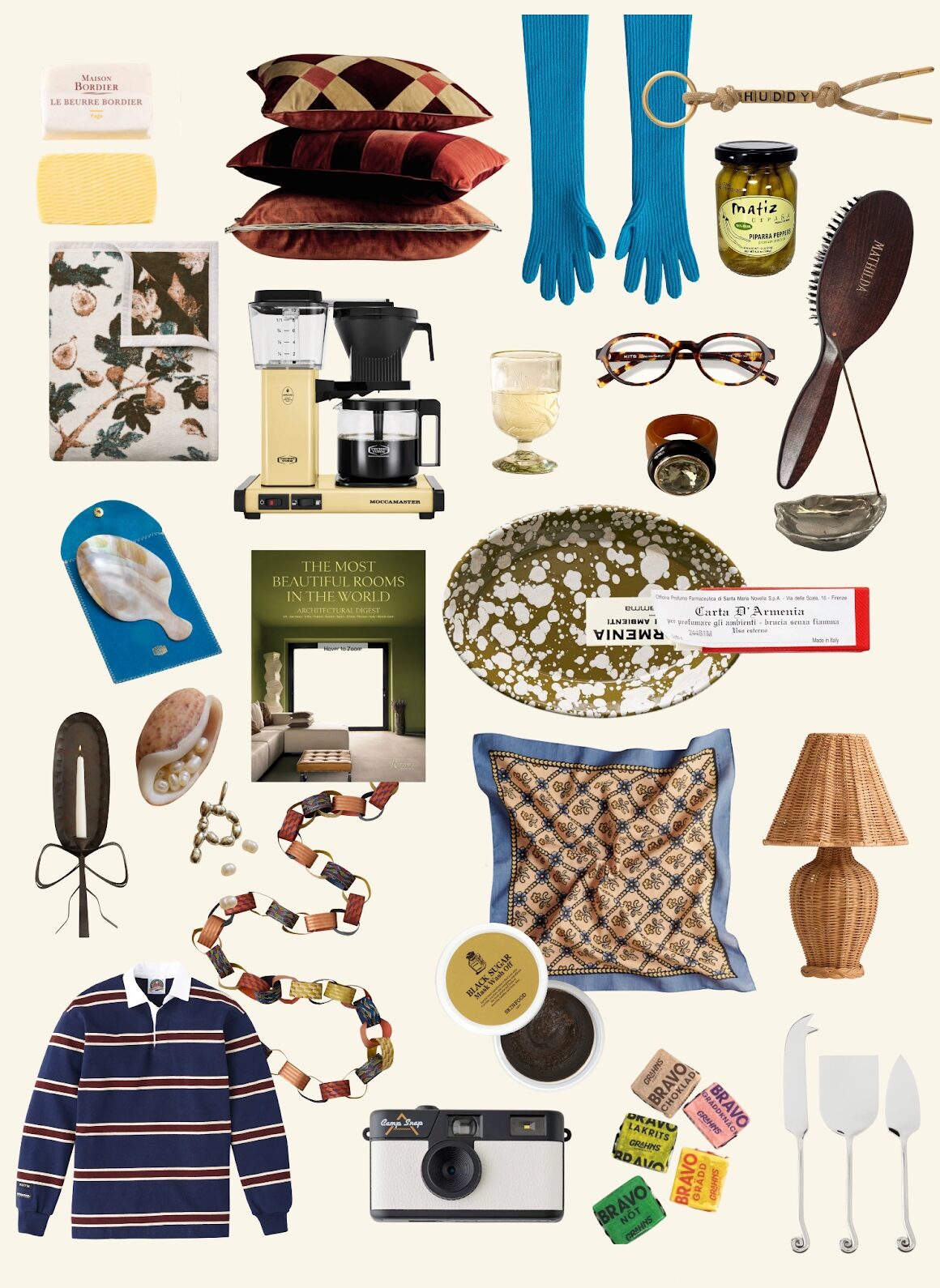

Editor’s Note: For many of us, the holiday season means more invitations, more events, and more togetherness. While all of the above can be enjoyable, it also requires a healthy dose of boundaries. We’re sharing today’s post, originally published in November 2021, to help us better set our own holiday boundaries this season.
During my first few years of marriage, the phrase happy holidays felt like a bit of a misnomer. You see, I didn’t find this time of year to be particularly merry-making with the amount of work that went into mapping out how we would uphold each family’s traditions (and expectations) while trying to create our own memories. And full disclosure, there were some years where I thought, if we ever got a divorce, it would be because we couldn’t figure out a way to see both sets of grandparents on Christmas Eve and make it to the midnight church service in another state and still get home in time to wake up in our own bed. I really did.
But after fifteen years of juggling two sets of extended families spread out across the U.S., I think we’ve finally hit our stride when it comes to holiday boundaries. If you’re interested in reading about boundary setting, it’s likely you’ve had some issues in the past yourself. So I thought I’d share a few things we’ve learned—and this is all assuming home and family are safe for you—in case you wish you had more ways to advocate for yourself and what you want to do.
6 Ways to Set Better Holiday Boundaries
1. Figure out what you want your holidays to look like.
Seems simple, right? But setting down this initial outline is where you’ve got to start. If you’re going to be able to hold the line, you have to know where it is. Do you want to host a meal at some point? Hate hosting? Do you have a tradition that’s meaningful that you want incorporated into the festivities? A food that’s important to you? Write it all down. Compromise is the ultimate name of this game, so thinking long and hard about what’s crucial and what’s up for negotiation is critical up front. (Here’s one of my lines: I want to be at home on Christmas morning and have that first breakfast together while we open presents. Anyone can stay with us overnight, but I really don’t want to sleep anywhere else.)
Compromise is the ultimate name of this game, so thinking long and hard about what’s crucial and what’s up for negotiation is critical up front.
2. Share your list with your partner—and ask what they need.
Talk to your partner… another no-brainer. (This step goes for anyone you’d consider your primary holiday companion, whether a partner, a sibling, a parent, or a friend.) But in the middle of conflict is when I usually start to close myself off. Don’t be like me. Because a unified front is important; it decreases the potential confusion (“Well, I talked to Fred and he said…”) and it makes your opinion stronger when you both share and support it.
It’s also just good to know what they’ll need or want to have a pleasant holiday. Do you need a signal for when they need to step away to get some air? Do you know when it’s time to shift the conversation away from a topic that stresses them out? Did you remember to bring their childhood tree ornament that must be present before they start opening any gifts? Talk about it beforehand and things will go a lot smoother, I promise.
3. Remember, the early bird gets the worm.
When it comes to setting holiday boundaries, one of the worst things you can do is wait until the last minute to make plans or share your needs and opinions. Letting your mother-in-law know you always run a 5k in downtown Minneapolis on Thanksgiving morning in advance gives her enough time to shift her timeline without causing too much undue stress. Are you newly gluten-free? Let your sister know before she does her New Year’s dinner grocery shopping. When you advocate for yourself up front, it’s easier for others to help accommodate your needs.
4. Level-set expectations and define everything.
When to show up, what to bring, what to wear, when you need to leave. Put it all out there so there are no misunderstandings. We’ve had this happen, where we’d planned to leave at a certain time but hadn’t highlighted and underlined it for one side of the family and it became a big issue with hurt feelings. So as you’re letting your mother know you’ll “need to leave early,” tell her exactly when that is so she’s not left high and dry. Because when you aren’t sweating the details, you’ll have more energy to take care of yourself, lend a hand to your host, or just be present.
When to show up, what to bring, what to wear, when you need to leave. Put it all out there so there are no misunderstandings.
5. Commit fully.
You’ve negotiated the terms, everyone has agreed, and it’s time to show up at your event. Assuming the planning and boundary-setting went well, it’s time to commit fully to whatever you’re doing. Playing puzzles next to the fire? Decorating cookies? Sledding? Eating a big meal? Put your phone on silent and tuck it away. Lean into what’s happening around you, so everyone feels like they’re getting all of you. It’s about quality versus quantity with your time.
6. Consider the conversation.
Finally, it seems like setting boundaries around conversation can do a lot for everyone’s stress levels. (Though I’m not saying you should shy away from difficult topics. Just, perhaps, save it until after your meal, so people can join in or remove themselves based on their own needs, if things have a tendency to become contentious.) I like to have a pre-set list of conversation starters, and usually comb through the Arts & Culture section of The New York Times, scroll through the latest Netflix releases, and brush up on my trivia before heading to a gathering. And one more line for friends and relatives who insist on looping you into a conversation: Learn the phrase, “I don’t know enough about that to have an opinion.” And that’s okay.


Kate Smith is a content producer for a beloved Minnesota retailer, wife to Fred and mother to Samson (7) and Naomi (5). With her allotted 30 seconds of daily free time, Kate likes to make a frozen Tom Collins, grab her new Romance Writer’s Phrase Book and pretend she can’t hear her family knocking on the other side of the bathroom door.
BY Kate Smith - November 14, 2022
Most-read posts:
Did you know W&D now has a resource library of Printable Art, Templates, Freebies, and more?
take me there
Get Our Best W&D Resources
for designing a life well-lived




Thank you for being here. For being open to enjoying life’s simple pleasures and looking inward to understand yourself, your neighbors, and your fellow humans! I’m looking forward to chatting with you.
Hi, I'm Kate. Welcome to my happy place.


















Like what you see?
Share Wit & Delight with a friend: